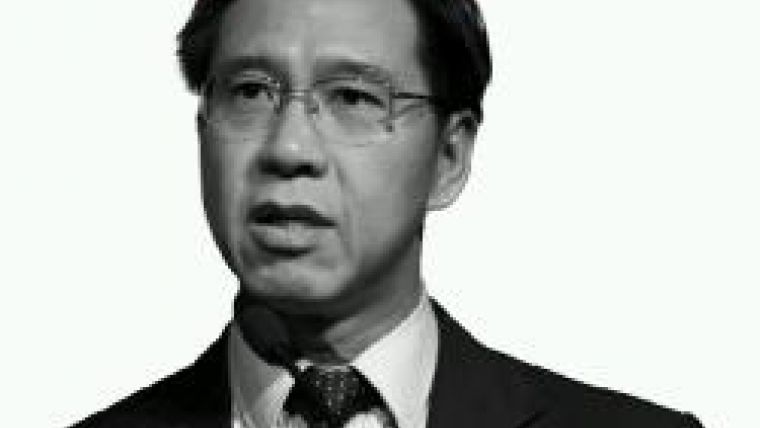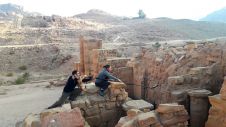Working for the Surveyor Out There
GIM Interviews CheeHai Teo, President of FIG
CheeHai Teo took office as new president of FIG for a four-year term (2011-2014) on 26th November in Copenhagen, Denmark. Having been elected by Congress in Sydney in April 2010, Teo has used the intervening time with outgoing President Stig Enemark to work on and ensure smooth leadership transition. CheeHai Teo for the first time here shares his views on what his term will hold: the work that lies ahead for FIG and the broader surveying community.
President CheeHai Teo, congratulations on this new job!
Thank you very much. It was fortunate we had a long transition period, in which I worked together with Professor Stig Enemark to ensure as smooth a handover as possible. So I was prepared for this official handover, as well as for the work that lies ahead.
You talked in your inaugural speech of differences in style and culture. What did you mean by that?
Of course there are differences, because we are from different backgrounds. The simple truth is that we are from differing cultures, different parts of the world, and this is the very strength of FIG. The ability to work together to ensure a smooth and orderly transition of leadership meant we are both committed to that desired outcome for FIG.
Will the fact that you are from Malaysia impact on the views, focus and emphasis of FIG?
Definitely, but the internationality of FIG remains. We will continue to find ways to work throughout continents, to build bridges between cultures. I am privileged in that I was brought up in Malaysia, had my tertiary education in Australia and have travelled widely. The friendships and experience involved have been helpful, and I intend to capitalise on these experiences for the benefit of the internationality of FIG.
What, in your view, are the biggest challenges for the profession of surveyor?
In many parts of the world, not all, the surveying profession is still playing a nominal role. What we need to do is mainstream the role of surveyor in the national and economic development of these countries. In others we need to advance, to strengthen the role and relevance, as I firmly believe in the key and significant role of the surveyor. There's one other thing that we need to focus on: to put this in another, more pertinent way, we should not be product-centric anymore, but rather people-centric. It's not always the most accurate map that counts, but the final outcome of the survey.
FIG will be presenting a new Work Plan 2011-2014 after the General Assembly during Working Week in Marrakesh. Can you lift a tip of the curtain in advance?
I would like leave the responsibility for approving the Work Plan to the General Assembly. However, I can only say that in the current draft it has at least three important components. The first is for FIG to continue to engage global challenges such as climate change, adequate food and shelter, and rapid urbanisation, as we are doing, for instance, in our work with the World Bank, UN-Habitat and UN-FAO. Secondly we want to ensure the significance and relevance of the profession, as I said earlier, by focusing on the key role of the surveyor. The surveyor should feel that his work counts, that he's making a difference. The third component is engaging the FIG membership; getting them to participate in activities and events, as well as discussions on the role and policy of the Federation.
We have carried a number of articles in GIM International on the lack of students entering Geomatics faculties. Are you worried by these lower numbers choosing the profession of surveyor?
I have heard and read about the problem, but from what I am gathering, this is mainly happening in Europe, North America and Australia. I am made to understand there's no shortage of students in Asia and Africa. In fact, at this handover ceremony I heard somebody complaining that in Africa it's not the lack of students that is the concern, there are plenty. It's the lack of good lecturers to teach all these students that is worrying faculty heads over there. However, there is some concern about ageing practitioners and the ability to attract younger surveyors into the practice.
Fraud and land grabbing by multinationals are current phenomena in both disaster-struck areas and those lacking coherent land registration, leaving the poor even more vulnerable. Would you promote a global cadastral map to prevent such abuses?
It is true that in flood of earthquake-struck areas like Pakistan and Haiti, or the Philippines, hit last year by severe typhoons, the poorest are afraid of losing land due to their rights not being properly registered. I haven't thought of the concept of a worldwide cadastral map. I do recognise one challenge: the cadastre is always a sovereignty issue, and that would be one limiting factor for such a project. In Malaysia cadastral surveying is essentially a federal matter, while land is one for the state. However, Malaysia has built a national digital cadastral database.
Do you think there is a role for FIG in thinking, discussing and consulting on such matters?
If we want to play our role as an international NGO we should definitely think about things like this. FIG can have a message to deliver, together with member associations where necessary. However, as provided in the Statutes, FIG shall abstain from any interference in questions of a political, racial or religious nature, and shall not permit any of its activities to be influenced by statements or actions of a political, racial or religious nature.
Is it important to you to play a role on behalf of the surveyor and man in the street?
Yes. I am privileged to work for a federation that can make a difference. I really believe that it is important to show and prove that what we are doing is making a difference for the surveyor out there, but also for the man in the street; increasing the usefulness of surveying for the benefit of society, the environment and the economy. There are many challenges in one's professional life, and it is good to know that our work is contributing to the betterment of humanity.
In conclusion, can you summarise your main goal for the coming four years?
To see the surveying profession, armed with knowledge and best practices, extending the usefulness of surveying for the benefit of society, the environment and the economy; to see it increasingly highly positioned in significance and relevance, and ubiquitously so. However, I don't have a monopoly on ideas, and I will work to mobilise energies that are out there to put the surveying profession on a firm footing.

Value staying current with geomatics?
Stay on the map with our expertly curated newsletters.
We provide educational insights, industry updates, and inspiring stories to help you learn, grow, and reach your full potential in your field. Don't miss out - subscribe today and ensure you're always informed, educated, and inspired.
Choose your newsletter(s)
























